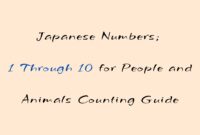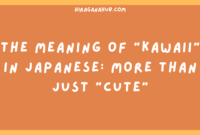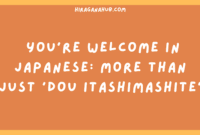Onegai Shimasu Meaning: A Simple Guide to Using This Polite Phrase

When you’re learning Japanese, one phrase you’ll often come across is “onegai
shimasu” (お願いします). It’s a super versatile expression that can fit into
many everyday situations. So, what does it mean? And how do you use it
correctly? Let’s break it down!
The Basics
“Onegai shimasu” is a polite way of saying “please” or “I request” in
Japanese. It’s built from:
- Onegai (お願い): A request or wish.
-
Shimasu (します): A formal conjugation of the verb “suru” (する), which
means “to do.”
Put together, it conveys the idea of politely making a request.
Situations and Examples
Here are some common scenarios where you might hear or use it:
1. Ordering at a Restaurant
Imagine you’re at a sushi bar. You want to order tuna sushi. Instead of saying
just “tuna,” you can politely add:
- Maguro onegai shimasu. (マグロお願いします)
- Translation: “Tuna, please.”
2. Asking for Help
You’re in a store, and you need assistance finding an item. You might say:
- Tasukete onegai shimasu. (助けて お願い します)
- Translation: “Please help me.”
3. Introducing Yourself in a Formal Setting
When introducing yourself in a business meeting or a formal class, you can end
your introduction with:
- Yoroshiku onegai shimasu. (よろしくお願いします)
-
Translation: “I look forward to working with you.” / “Please take care of
me.”
4. Making a Request in Daily Life
If you’re asking someone to lend you a pen, you could say:
- Pen wo kashite onegai shimasu. (ペンを貸してお願いします)
- Translation: “Could you please lend me a pen?”
Formal vs. Casual
While this phrase is polite, you might hear a more casual version,
“onegaishimasu” (お願い). For example:
- Chotto onegai! (ちょっとお願い)
- Translation: “A quick favor, please!”
This casual version is often used among close friends or family. But when in
doubt, stick with the formal version.
Final Thoughts
This phrase is a must-know for anyone learning Japanese. It’s polite,
flexible, and shows respect in your interactions. Whether you’re ordering
food, asking for help, or making introductions, it will come in handy.
Practice it in different situations, and you’ll sound more natural in no time.
So go ahead, give it a try: Onegai shimasu!


